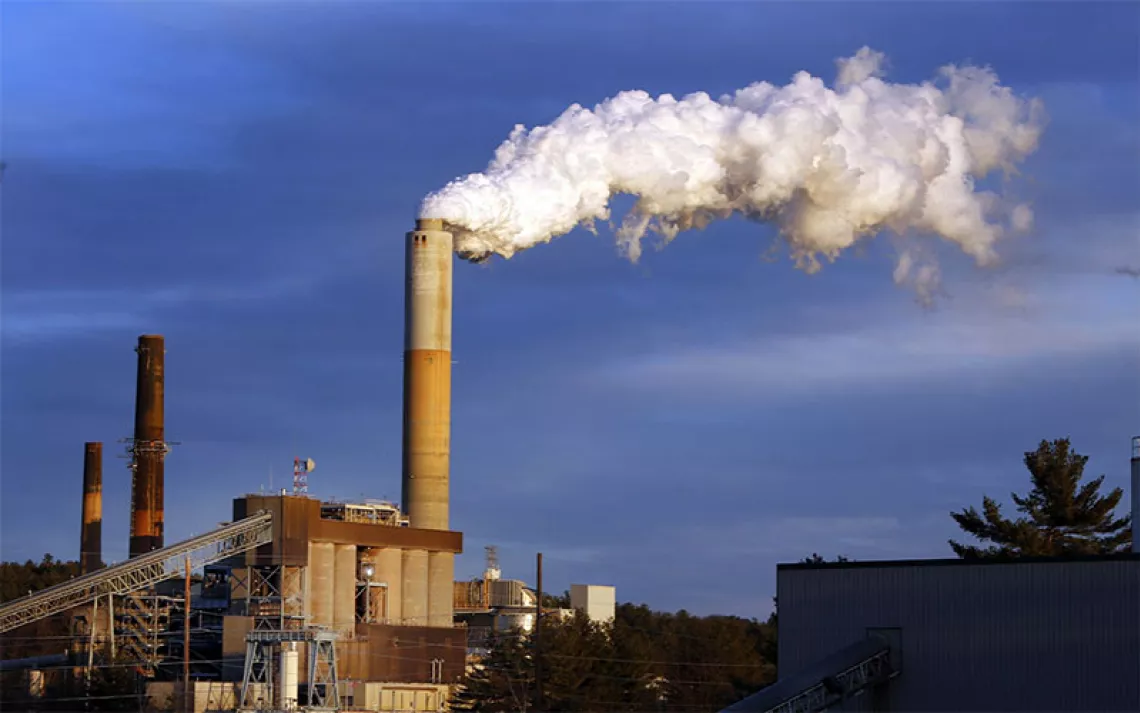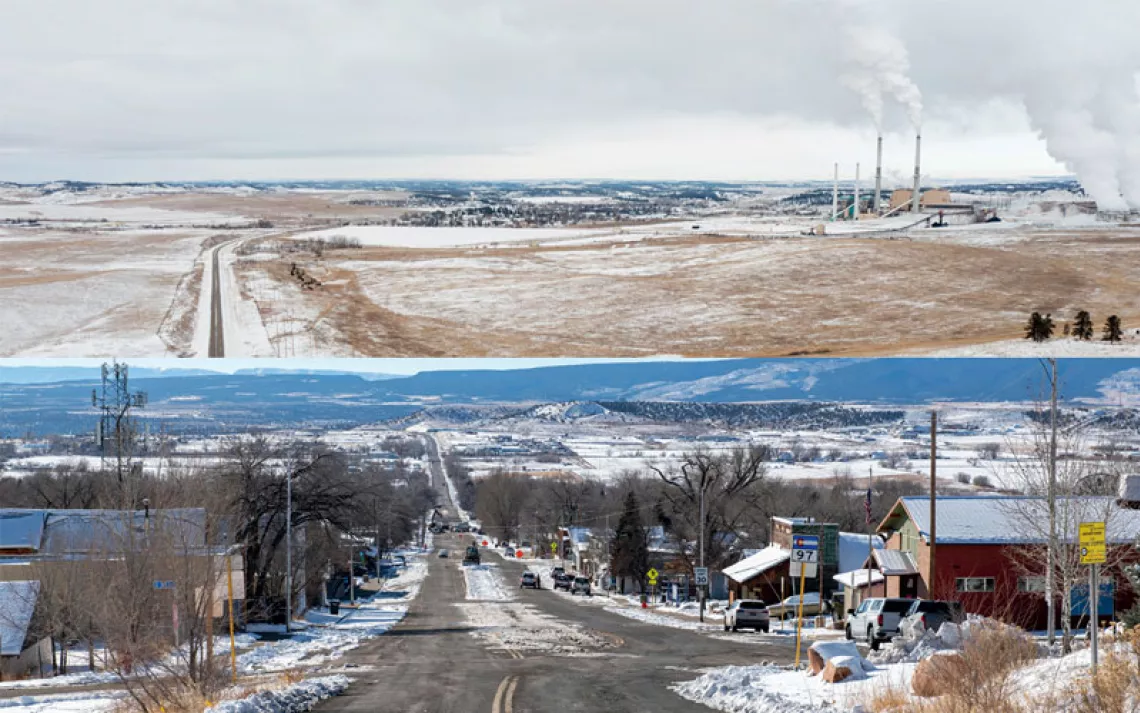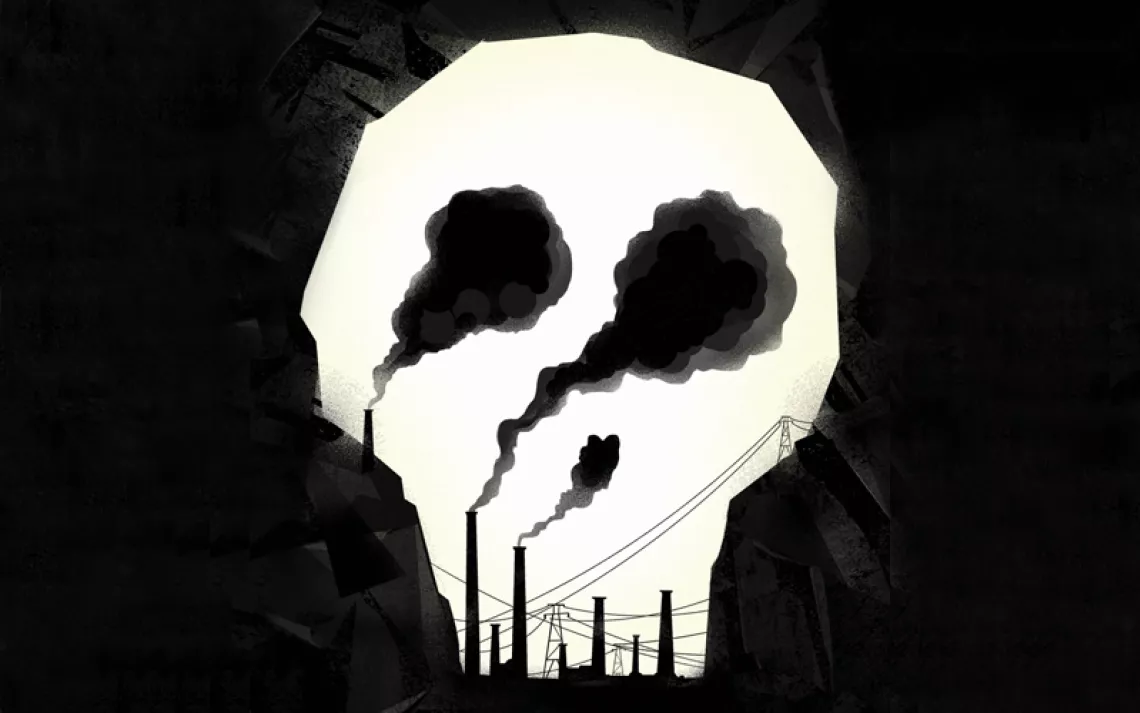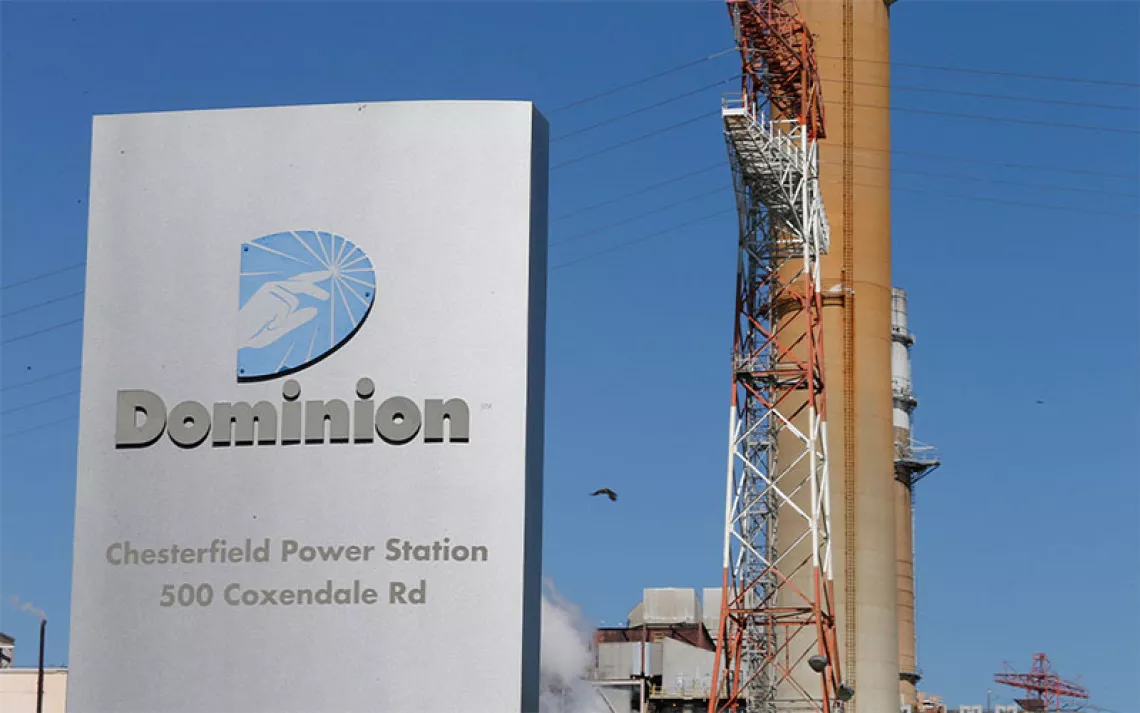Is Big Coal Buying "Likes?"
Peabody Energy claims that half a million people support its "grassroots" campaign to fight energy poverty, but it smells a lot like Astroturf
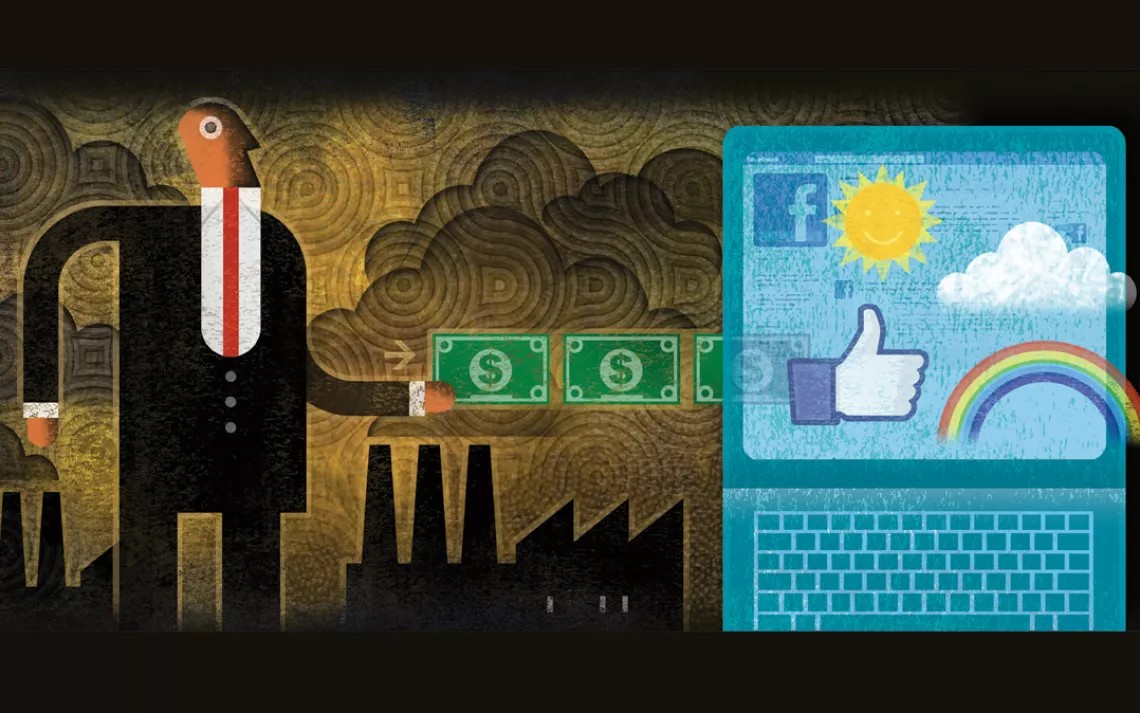
Illustration by Gordon Studer
When the Advanced Energy for Life campaign launched last fall, its Twitter and Facebook pages featured the same endearing photo of a toddler, apparently impoverished, at that tongue-depressor moment of a doctor's checkup. Beside her was a slogan: "Urge world leaders to fight energy poverty."
One crucial fact that's not immediately apparent on the AEL website or in its social media campaigns: The organization was created by one of the world's largest coal companies, Peabody Energy. Even though Peabody admits to being the driving force behind what is clearly a public relations ploy, it continues to try to present AEL as a grassroots movement. "Approximately a half-million citizens from 48 nations have urged G20 member nations to place greater focus on advancing policies to alleviate energy policy [sic] in the past eight weeks," Peabody announced in a November press release.
It's true that AEL's Facebook page has been "liked" by more than 450,000 people, while its Twitter account has more than 125,000 followers. But spend some time perusing the flood of anti-coal replies that accompany many of its Facebook posts and tweets, and you'll wonder where all those supporters are hiding, or if they even exist. "Is this some kind of a sick joke?" one Facebook member asked after AEL shared a link to an op-ed titled "The Moral Case for Fossil Fuels." Another commenter wrote, "This is ignorance at its best."
Environmentalists have accused Peabody of paying for the "likes" on AEL's Facebook page, which the company has publicly denied. It's an easy and inexpensive tactic: On buycheapfollowersfast.com, for instance, you can purchase 3,000 Twitter followers for a mere $15. On buy-facebook-fans.com, adding 5,000 Facebook fans to your page costs $55. So Peabody could have purchased the entirety of its "grassroots" social media following for less than $6,000--a tiny amount for a company that reported $7 billion in revenue in 2013. Peabody called such allegations "untrue and absurd" and insisted that its campaign to "alleviate energy poverty" has more than 500,000 international supporters.
Worldwide, 1.3 billion people lack access to electricity. But in many developing countries, residents are being lifted out of energy poverty not by coal-fired power plants but by the spread of home solar systems, battery-delivery services, and cleanly powered mini-grids. In Bangladesh, 80,000 rooftop solar systems are being installed monthly.
"It's a sham," Justin Guay, associate director of the Sierra Club's International Climate and Energy program, said of Peabody's AEL campaign. "It's a desperate, last-ditch attempt by this company--and really, this industry--to justify its existence in the 21st century. People see right through what they're trying to do. It's only going to backfire."
WHAT YOU CAN DO
Across the globe, 1.3 billion people live without electricity. The Sierra Club's International Climate and Energy program works with grassroots partners worldwide to provide access to clean energy and to stop the spread of fossil fuels. For information on how you can help, go to sierraclub.org/international.
 The Magazine of The Sierra Club
The Magazine of The Sierra Club
